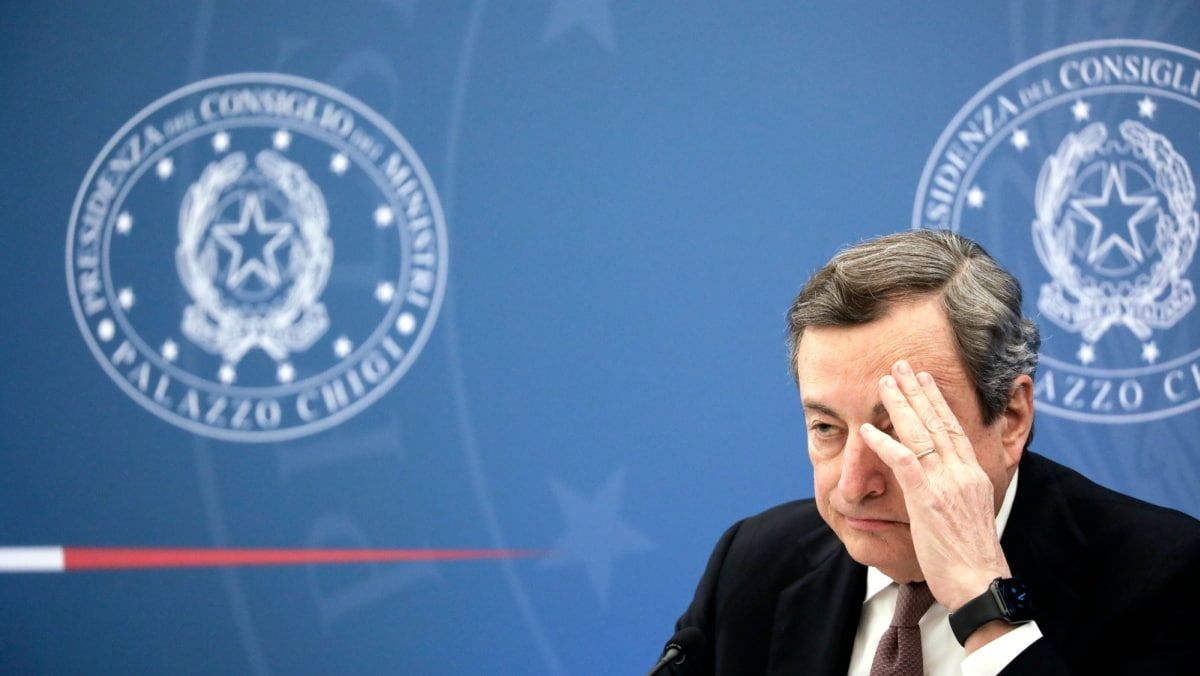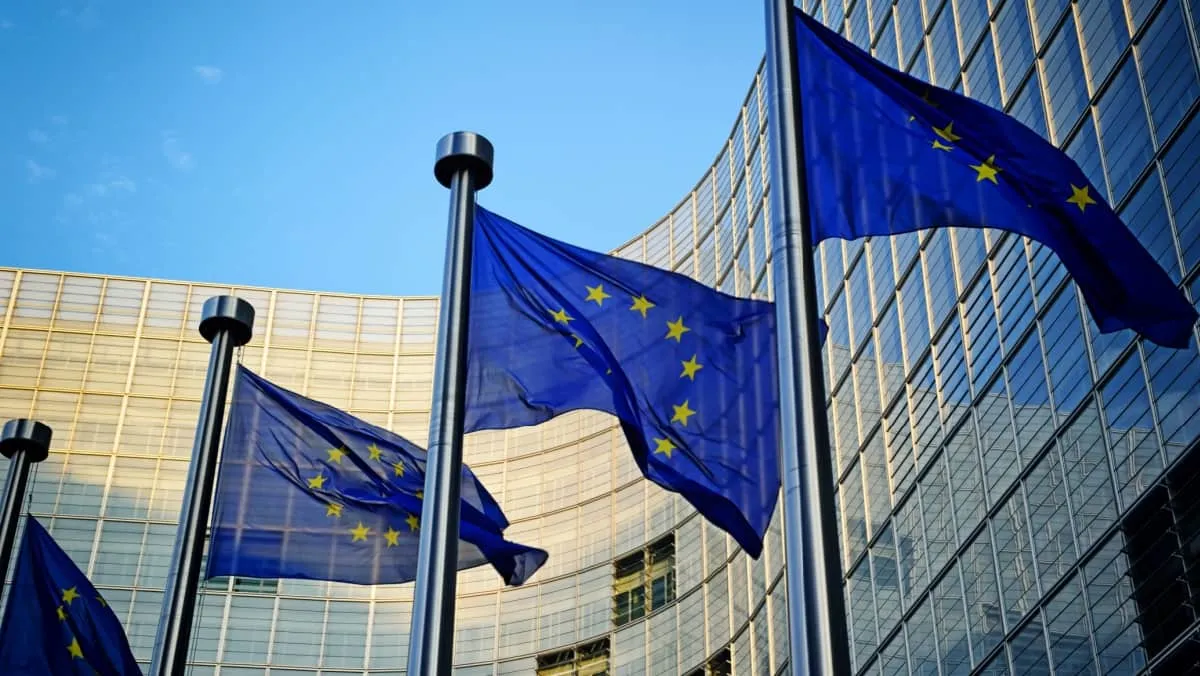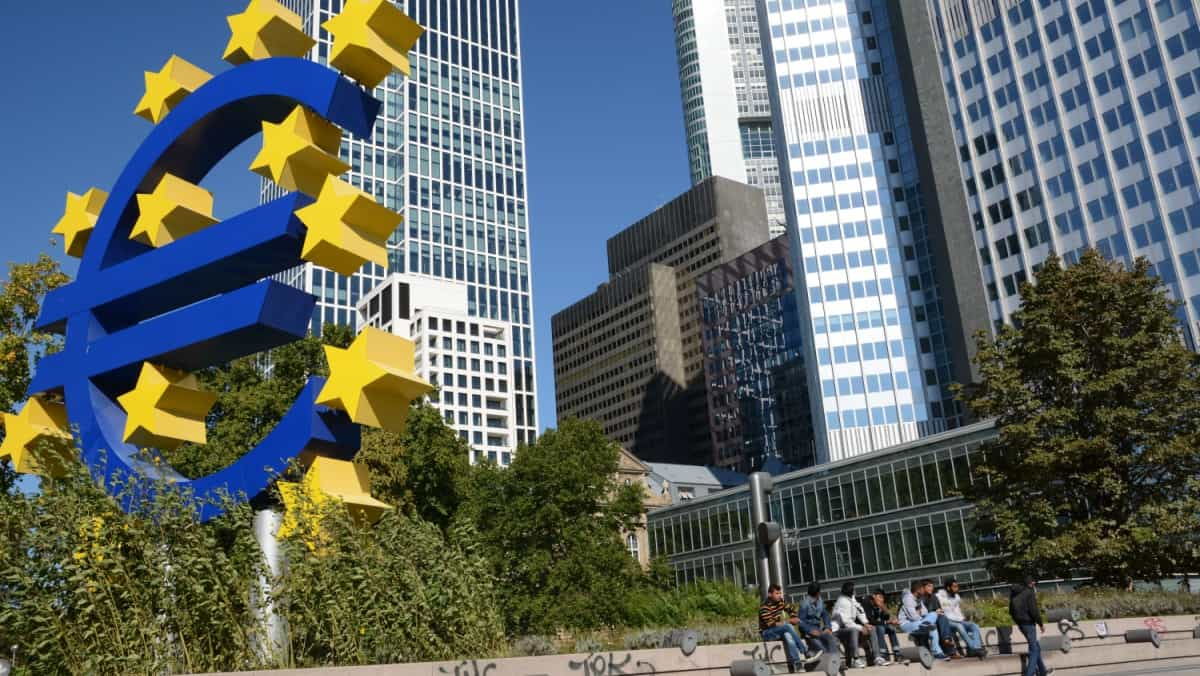Tuesday Sep 10 2024 15:45

11 min
1. Mario Draghi report: EU needs an €800bn-a-year spending boost to avert rapid decline
2. Is the Mario Draghi report all about “sensible policies for a happier Europe”?
3. Draghi report also points to flawed energy, technology policies
4. European Central Bank expected to cut interest rates again this week
5. UBS says FTSE 100 to hit 9,000 this year as BoE rate cut chances rise
6. Three major US stock indices rally by more than 1% on Monday

“We have reached the point where, without action, we will have to either compromise our welfare, our environment or our freedom.”
So, the question is, squeezed between Scylla and Charybdis, what gives? We have already, by degrees, compromised on all three. But Mario Draghi, the former ECB chief, has a plan. Lots of it sounds good. Lots implies scary overreach by the state; freedom is always the weakest link, the first to go in the name of safety or security or whatever agenda is being pushed. Either way, making the plan work is another matter entirely.
More EU, more money and be more like China — it’s ambitious and it is plain speaking. It also involves a far more centralised and state-controlled approach to economic (as well as fiscal) policy. It’s a technocrat’s dream – blank page stuff — but the idea that the Dutch or the Germans will go along with €800 billion in extra spending via a joint EU debt instrument, which is required to make it happen, is laughable. Or is it? Some see centralised fiscal intervention by the EU as the natural endpoint in the grand European project. The pandemic broke new ground and opened the door to states agreeing to joint debt instruments in times of crisis; and are we not already in a form of slow crisis? Draghi explicitly made the case: “We are already in crisis mode and to ignore this is to slide into a situation you don’t want to have.” Better to risk sticking your head in the lion’s jaws than let the rats eat you slowly.
And I go back to the speech by ECB President Christine Lagarde last April, which I have repeated time and again. This, I said at the time, was “a signal that we are about to go into a protracted economic (and maybe real) war and it will require the mobilisation of the state and people – developed world central banks (Fed, ECB, BoE, BoC, RBA) will act together to orchestrate fiscal spending and suppress yields”. The pandemic showed it could be done; Draghi’s report provides the intellectual justification for centralising fiscal regimes permanently.
However, Germany has already expressed opposition to joint EU bond issuance. And the report has landed at a time of increasing fragmentation and rising populism that would make improving “slow and disaggregated policymaking processes” all but impossible in the near term. But ever the technocrat, Super Mario thinks more EU, not less, is the answer. Whatever it takes, I suppose.
What’s fascinating about the plan is just how “sensible” Draghi’s analysis appears to be. But intense centralisation and the expansion of the state and its bureaucracy (even if to some extent he seems to be calling for less red tape) required to ensure we are as competitive as the rest of the world would just make Europe and lot less European, and a lot more like China.
My feeling is that the goal should be finding a way to make us more competitive by being more European: i.e. by encouraging European states to compete against each other...the historic development arc that propelled us to the top. Partly it’s the very lack of competition between European states that is the problem. (For the purposes of this, I am lumping the UK in as being broadly “European” in its outlook and malaise – and because Keir Starmer and co. are going in this direction).
The critique though was rather accurate, in many ways. For instance, the tremendous regulatory burden on tech firms as a barrier to growth.
"Regulatory barriers to scaling up are particularly onerous in the tech sector, especially for young companies. Regulatory barriers constrain growth in several ways. First, complex and costly procedures across fragmented national systems discourage inventors from filing Intellectual Property Rights (IPRs), hindering young companies from leveraging the Single Market. Second, the EU’s regulatory stance towards tech companies hampers innovation: the EU now has around 100 tech-focused laws and over 270 regulators active in digital networks across all Member States.
Many EU laws take a precautionary approach, dictating specific business practices ex ante to avert potential risks ex post. For example, the AI Act imposes additional regulatory requirements on general purpose AI models that exceed a pre-defined threshold of computational power – a threshold which some state-of-the-art models already exceed. Third, digital companies are deterred from doing business across the EU via subsidiaries, as they face heterogeneous requirements, a proliferation of regulatory agencies and “gold plating” of EU legislation by national authorities. Fourth, limitations on data storing and processing create high compliance costs and hinder the creation of large, integrated data sets for training AI models.
This fragmentation puts EU companies at a disadvantage relative to the US, which relies on the private sector to build vast data sets, and China, which can leverage its central institutions for data aggregation. This problem is compounded by EU competition enforcement possibly inhibiting intra-industry cooperation. Finally, multiple different national rules in public procurement generate high ongoing costs for cloud providers. The net effect of this burden of regulation is that only larger companies – which are often non-EU based – have the financial capacity and incentive to bear the costs of complying. Young innovative tech companies may choose not to operate in the EU at all."

Draghi’s critique highlighted Brussels’ failing energy policies.
“Even though energy prices have fallen considerably from their peaks, EU companies still face electricity prices that are 2-3 times those in the US. Natural gas prices paid are 4-5 times higher. This price gap is primarily driven by Europe’s lack of natural resources, but also by fundamental issues with our common energy market. Market rules prevent industries and households from capturing the full benefits of clean energy in their bills. High taxes and rents captured by financial traders raise energy costs for our economy.”
Or the lack of technology.
"First – and most importantly – Europe must profoundly refocus its collective efforts on closing the innovation gap with the US and China, especially in advanced technologies. Europe is stuck in a static industrial structure with few new companies rising up to disrupt existing industries or develop new growth engines. In fact, there is no EU company with a market capitalisation over EUR 100 billion that has been set up from scratch in the last fifty years, while all six US companies with a valuation above EUR 1 trillion have been created in this period. This lack of dynamism is self-fulfilling."
Or lofty ambitions that are not backed up on the ground.
“The automotive sector is a key example of lack of EU planning, applying a climate policy without an industrial policy.”
And what the causes of these symptoms might be, which we can pretty much sum up as fragmentation:
“First, Europe is lacking focus. We articulate common objectives, but we do not back them by setting clear priorities or following up with joined-up policy actions.
Second, Europe is wasting its common resources. We have large collective spending power, but we dilute it across multiple different national and EU instruments.
Third, Europe does not coordinate where it matters. “
All three, to my mind, can be summed up as fragmentation. This is the natural product of history, our uniqueness as Frenchmen, Danes, Italians — different countries with different traditions that cannot easily be harmonised into a single Borg-like entity for the sake of coordinated industrial strategy.
Draghi seems to see sovereignty as a problem: “Decisions are typically made issue-by-issue with multiple veto players along the way.”
What he says in his diagnosis is broadly correct, but what he implies by his cure should make anyone quake.

Of more immediate concern for European markets, later this week the European Central Bank is expected to cut interest rates again. The ECB left interest rates unchanged in July but said September's meeting was "wide open” as it downgraded its projections for growth and inflation in the Eurozone. A 25-basis-point (bps) cut at this meeting now looks increasingly certain, particularly as the Fed is a slam dunk to cut this month as well.
Eurozone inflation dropped to a three-year low of 2.2% in August, down from 2.6% in July. The core rate fell to 2.8% in August from 2.9% in July. Eurozone manufacturing PMI data out last week was also very soft and, taken together, continue to build the case for the ECB to cut again in September.
Another factor supporting a cut is the recent growth in negotiated wages, which slowed to 3.55% in the second quarter from 4.74% three months earlier, thanks mainly to a slowdown in Germany. The ECB has long stressed how important the negotiated wage data is to its policy outlook.
FTSE 100 to hit 9,000 this year, says UBS says, citing political stability, last month’s interest rate cut by the Bank of England, and a likely return to earnings growth this year. UK stocks still suffer from “undemanding valuations”, with shares trading at a lower price/earnings ratio than the long-running average. But don’t get too excited — all this is “largely priced in”, and “UK equities will struggle to outperform their international peers in what we expect to be a positive year-end for stocks”.
Chances of a rate cut by the Bank of England have ticked up even before wage data this morning showed a marked slowdown that ought to give policymakers greater scope to ease. Wage growth excluding bonuses declined to 5.1% in the three months to July, down from 5.4% in the quarter to May. Grocery inflation returned to its downward trend, according to Kantar.
Stock markets made a bit of a comeback on Monday. The three major US indices all rallied more than 1% after their bruising start to the month.
The FTSE 100 added more than 1% for the session but is a tad weaker this morning, down 0.4% early doors to trail some modest gains on mainland Europe. Apple shares were unmoved after-hours on the launch of the new iPhone 16.
When considering shares, indices, forex (foreign exchange) and commodities for trading and price predictions, remember that trading CFDs involves a significant degree of risk and could result in capital loss.
Past performance is not indicative of any future results. This information is provided for informative purposes only and should not be construed to be investment advice.